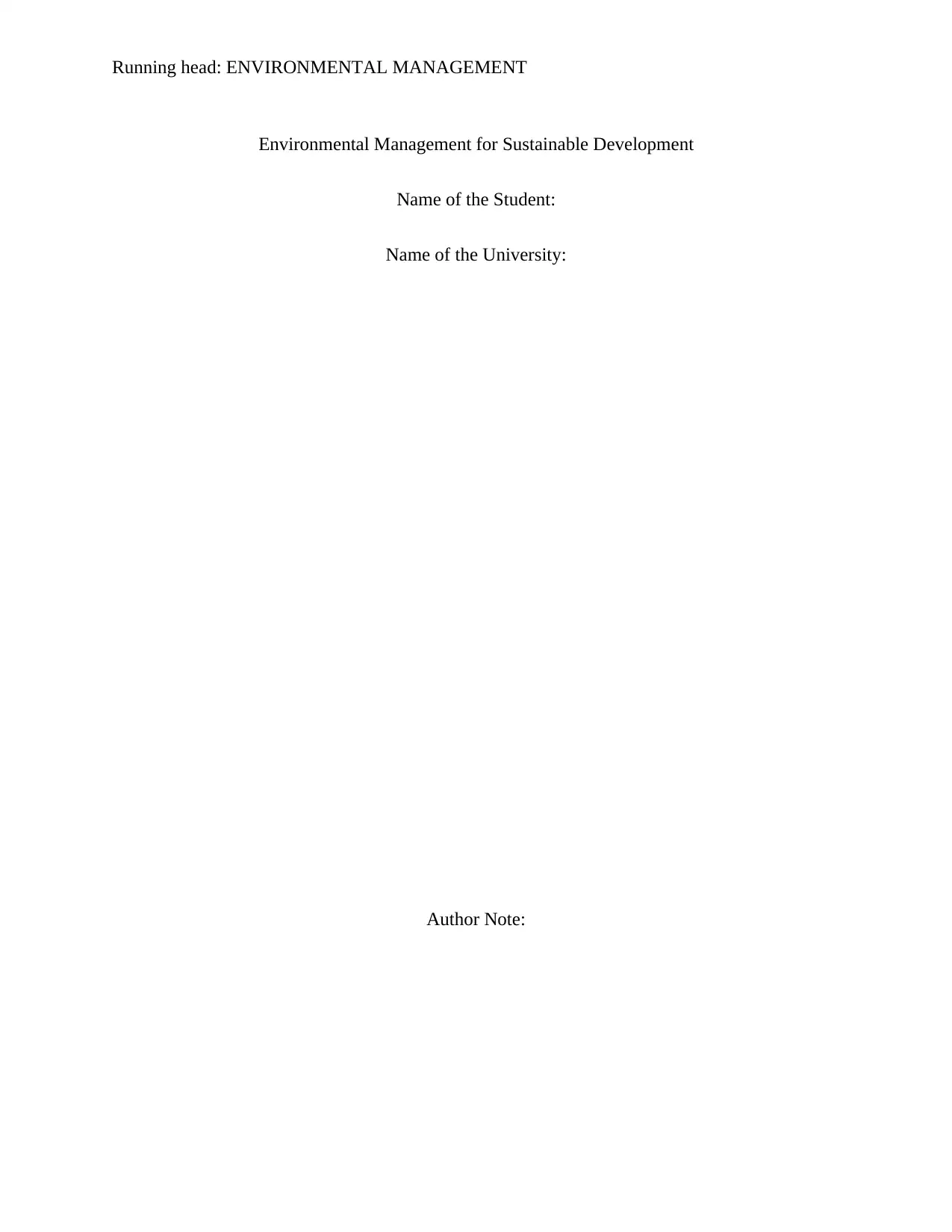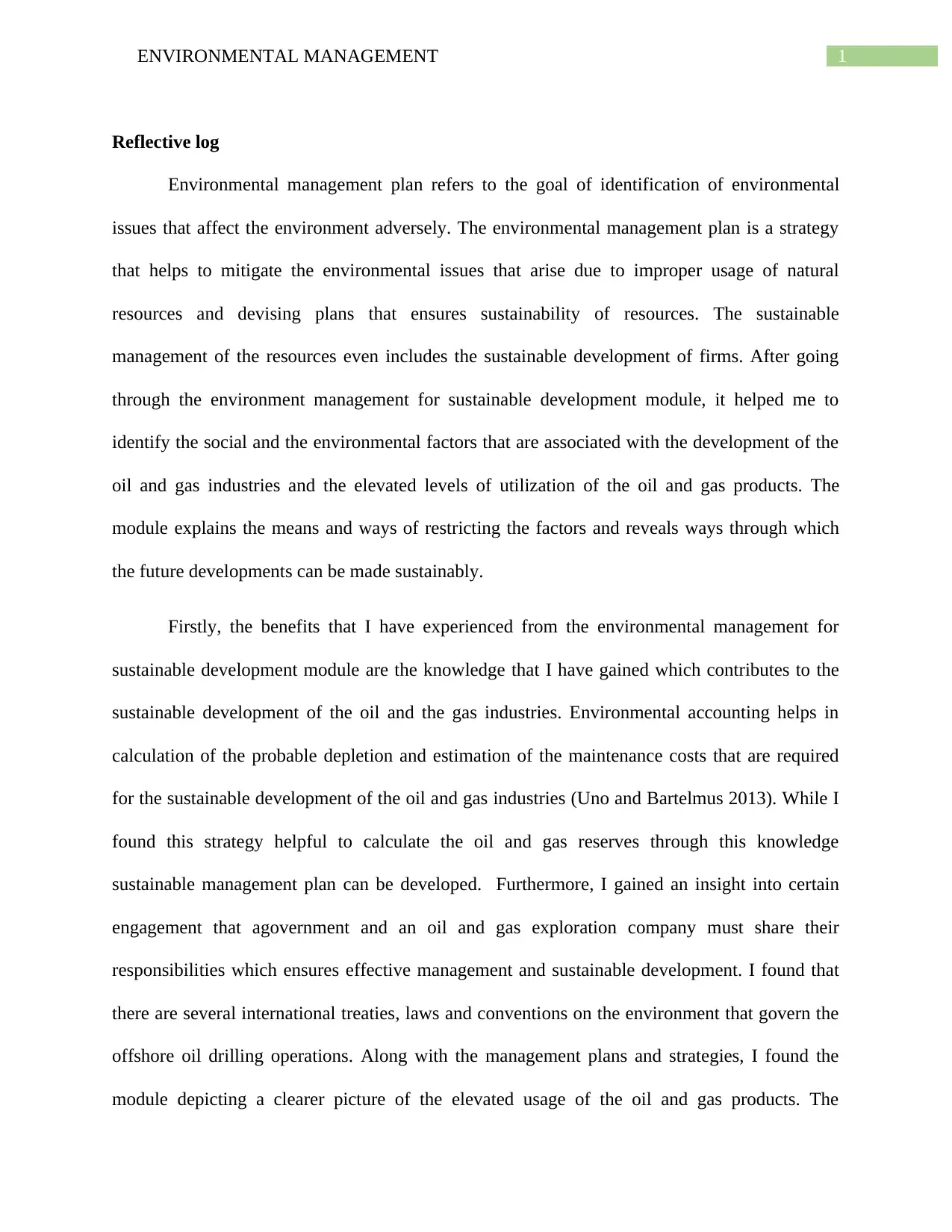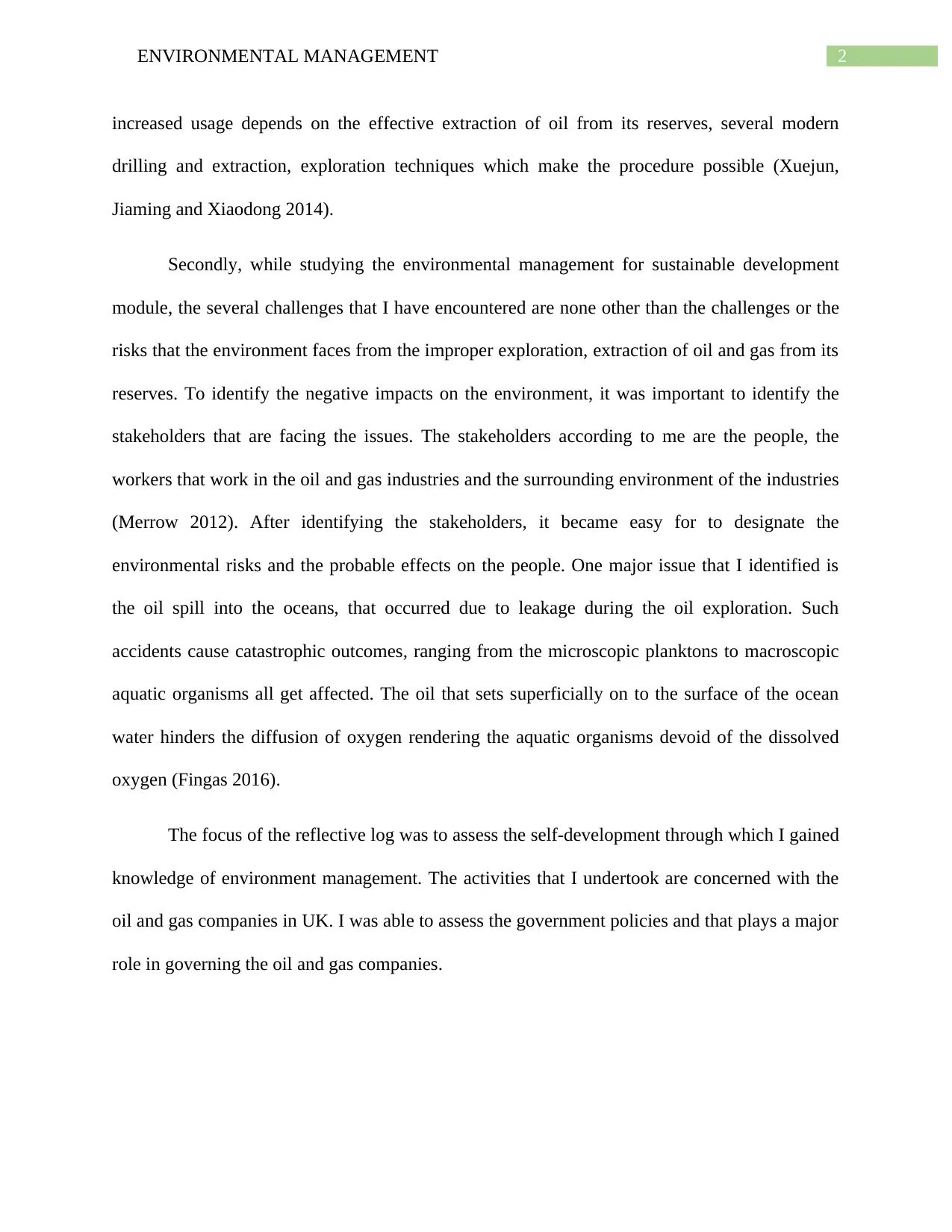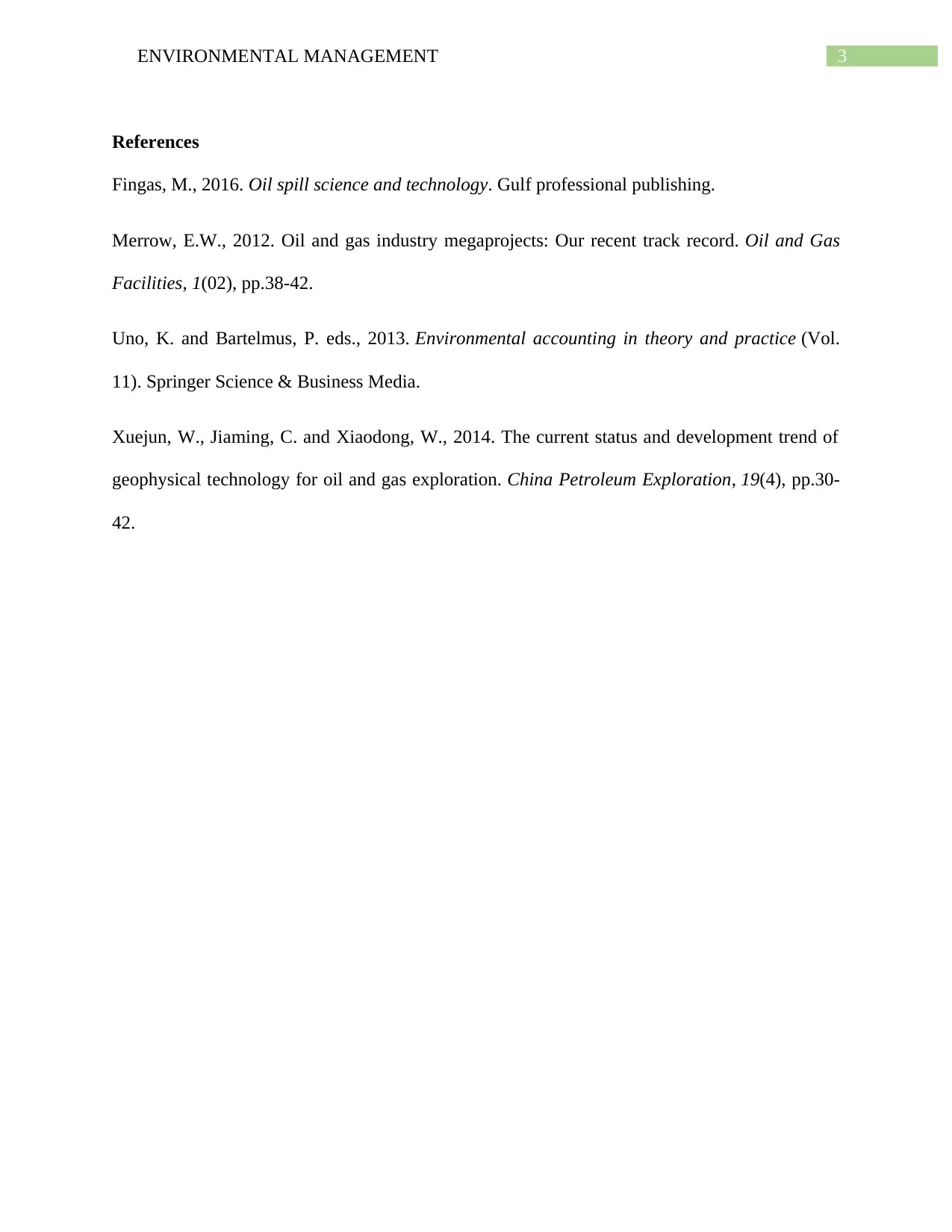Reflective Log on Environmental Management for Sustainable Development
VerifiedAdded on 2020/04/15
|4
|744
|51
Journal and Reflective Writing
AI Summary
This reflective log details a student's exploration of environmental management for sustainable development, focusing on the oil and gas industry. The author reflects on the knowledge gained from a module, highlighting the importance of environmental accounting and the roles of government and oil companies in ensuring sustainable practices. The log identifies challenges, particularly environmental risks associated with oil exploration and extraction, such as oil spills and their impact on marine life. The student assesses stakeholders affected by these issues and discusses the importance of government policies in regulating the industry. The log concludes with a focus on the student's self-development and understanding of environmental management within the context of UK oil and gas companies, drawing on academic references to support the analysis.
1 out of 4











![[object Object]](/_next/static/media/star-bottom.7253800d.svg)